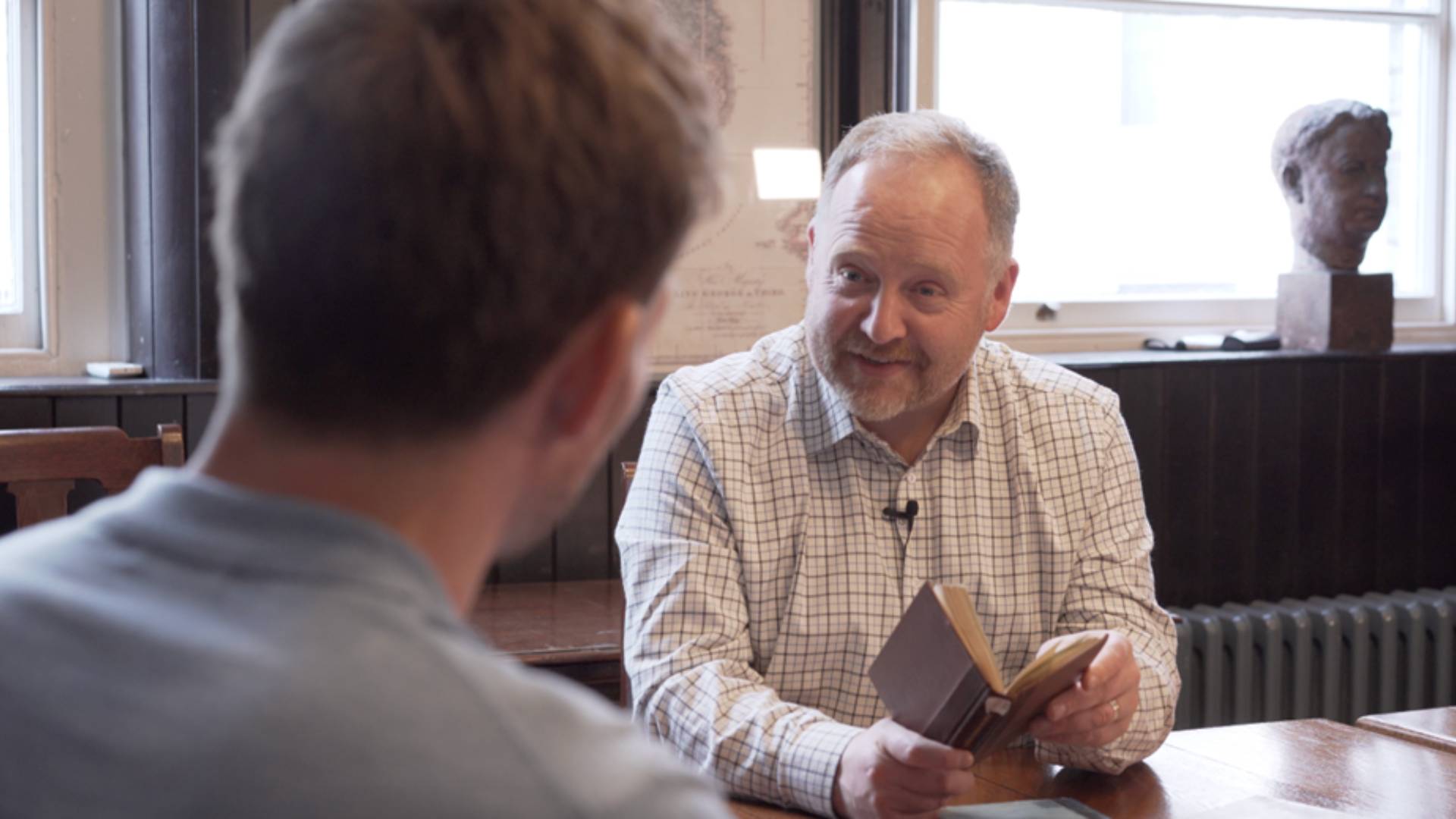
Mark Thompson, Ulster Scotsman, presenter and Scots Language enthusiast picked out an early edition of James Orr’s poetry from the Gibson Collection. He told Alistair Heather about the man and the work.
“James Orr is known as the bard of Ballycarry, a wee village outside Belfast. It overlooks Carrickfergus, and more importantly, it overlooks Ayrshire. So, when you’re up at Ballycarry kirk, where James Orr’s wonderful big enormous monument is, you can look right across to Scotland.
[Orr] was part of that nexus of writers that straddled the water back in that generation. His great mentor was another local man, Samuel Thompson. Thompson actually went to Dumfries to meet Burns. They corresponded, those letters survive, and they exchanged snuff and dear knows what all else.”

Orr and Thompson were writing in a similar Scots tradition to the one in which Burns emerged from. There is an important shared feature in terms of the background of Orr and Burns, and the other poets of that era: their humble background. Mark explains;
“Orr’s poetry is wonderful. There is that kind o hamespun, homely thing about James Orr and that whole group of writers. They are known as the Weaver Poets. They were self-educated, ordinary, working-class folk. Some people can read the poetry and they can hear the noise of the loom and the shuttle and all the mechanisms going in the way that they wrote.”

James Orr was certainly attuned to his surroundings, but he and his contemporaries also felt compelled to raise their heads and look about them, engaging both poetically and physically in the political struggles of the age. Orr was part of an Irish rebellion, which is commemorated in the early 1800s edition of his poetry in the Linen Hall.
“This edition has an inscription, which acknowledges Orr’s role in the Battle of Antrim, because he was one of those men known as the United Irishmen. He was just a weaver, but at the same time he was also one of those radically-minded young men of his generation who’d had enough of the establishment and decided they were going to rise up. They forged pikes, and kept the blacksmiths busy for a wee while!”
He’s got great work [in this collection], some of it quite radical. His poem Donegore Hill is named for the place where the [United Irishmen] had mustered the day before the battle took place, an the poem’s him looking back on it with a degree of anger. Some folk said they were gonnae turn up and didnae turn up. Some folk that just got feart and ran away. Some of it’s quite heavy and intense. And some of its quite natural and working class and ordinary.”
Mark Thompson is a presenter with many credits to his name. His programme Hame is currently available on the iplayer here.

The Linen Hall (Belfast Library And Society For Promoting Knowledge) is registered with the Charity Commission for Northern Ireland NIC 104 564.